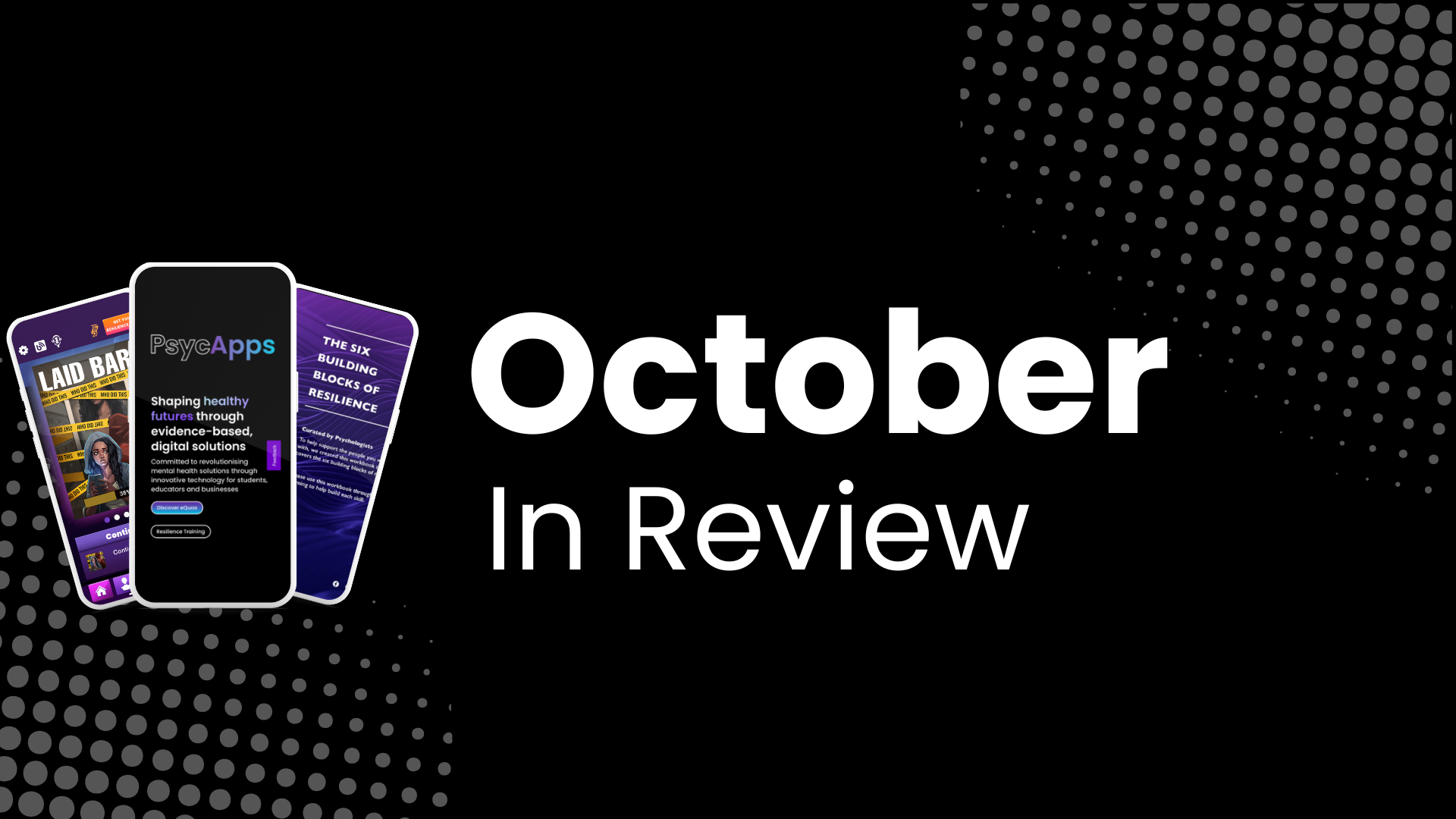October in Review: Key Mental Health Developments
Exploring the latest in Mental Health
Prioritising Mental Health in the Workplace
This year’s World Mental Health Day on October 10 centred on the theme “It is Time to Prioritise Mental Health in the Workplace.” With over 60% of the global population employed, workplace mental health has become a critical focus area. The World Health Organization (WHO) stressed the need for safer, healthier work environments, highlighting that poor working conditions—such as discrimination and harassment—pose significant risks to mental health. The campaign emphasised the importance of collaboration between governments, employers, and employees to create supportive work environments that foster mental well-being
New Insights from Public Attitudes Toward Mental Health
A recent report highlighted a concerning shift in public attitudes toward mental health in the UK, marking the first decline in positive perceptions in over a decade. The study, released in October 2024, revealed that mental health stigma remains a significant barrier, with many people feeling uncomfortable discussing mental health at work or seeking support. This underscores the need for ongoing education and awareness campaigns to break down barriers and create a more supportive environment for those facing mental health challenges.
Addressing the Global Mental Health Crisis
In response to ongoing mental health service gaps, especially within the NHS, the UK charity Mind launched its “No Mind Left Behind” campaign. This initiative calls on the UK government to reform the Mental Health Act and improve mental health services, particularly focusing on reducing waiting times, building support hubs for young people, and tackling stigma in the workplace. With 2 million people currently on NHS waiting lists for mental health care, the urgency of this campaign cannot be overstated
Research Focus: Mental Health and Climate Change
A recent spotlight in October focused on the emerging link between mental health and climate change. Researchers have identified that the growing climate crisis is contributing to increased anxiety, depression, and PTSD, particularly in communities directly affected by extreme weather events. The global research community is now pushing for more resources to be allocated to studying “climate anxiety” and providing mental health support to affected populations
New Breakthroughs in PTSD Treatment
In October 2024, Stanford University announced promising research findings on the use of brain imaging to better understand and treat Post-Traumatic Stress Disorder (PTSD). The study focuses on identifying brain biomarkers for PTSD, paving the way for more personalised treatment approaches. These insights are expected to improve early diagnosis and enhance therapies for those suffering from trauma, offering hope to millions of people globally impacted by PTSD
Looking Ahead: A Renewed Focus on Mental Health
October 2024 highlighted the growing global focus on mental health, with key developments in workplace well-being, climate anxiety, and PTSD treatment breakthroughs. Campaigns continue to push for urgent reform in mental health services, while research into public attitudes and the effects of climate change emphasise the need for ongoing action. As awareness grows, the challenge remains to translate these insights into meaningful change, ensuring that mental health support becomes more accessible and responsive to the evolving needs of individuals and communities.


